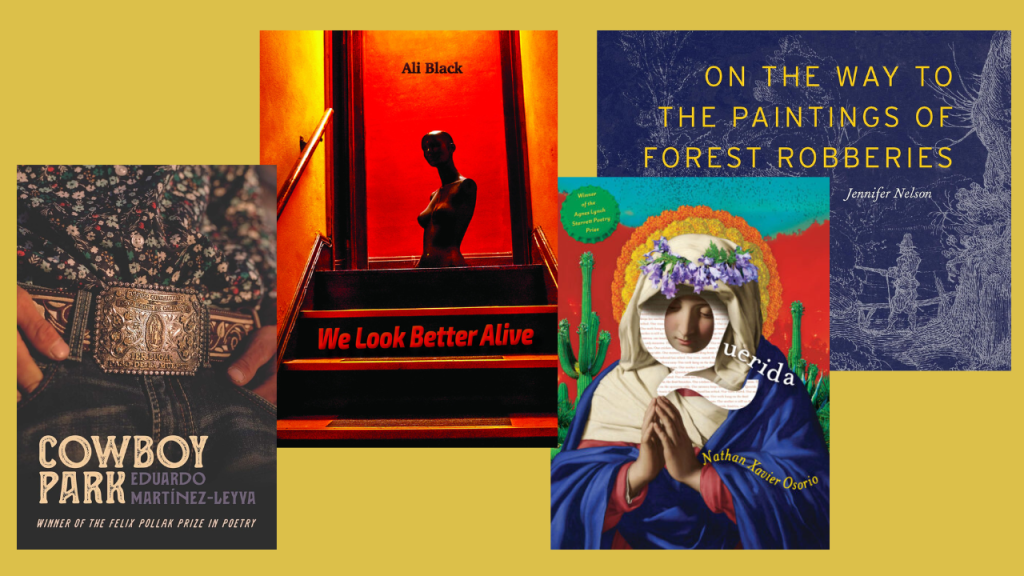We live in a world of constant interruption. Could poetry teach us to slow down and pay attention?
Meghan Maguire Dahn, a poet, creative writing instructor, and lecturer in Fordham’s English department, believes it can. She begins her Composition classes by reading a poem aloud, a practice she learned from an undergraduate philosophy professor. “It was like a sounding bell,” she said of his poetry readings, helping her switch gears and begin the deep thinking that the class required.
“I think of poetry as this engine for attention,” said Dahn. Whether she is reading or writing poetry, getting in “the poetic mode” means “slowing down, sitting with uncertainty and letting thought, feeling, and understanding blossom at a different pace than our day-to-day, deadline-driven worlds.”
So where to begin? We asked Dahn, author of the poetry collection Domain, and most recently, two poems in the journal No Tokens, to recommend four contemporary poetry collections worthy of our attention.
1. Cowboy Park (University of Wisconsin Press, 2024) by Eduardo Martínez-Leyva
Martínez-Leyva won the 2024 Felix Pollak Prize in Poetry for what Dahn calls a “phenomenally beautiful” and “unabashedly queer” collection of autobiographical poems. The reality of life growing up in the border town of El Paso figures prominently in this collection, which includes a series of self-portraits with his mother as he’s helping her study for citizenship. “It’s a debut book of poetry that I think is really important right now,” she said.
2. We Look Better Alive (Burnside Press, 2025), Ali Black
The experience of grief and mourning in Black communities is just one of the themes in this collection by Black, who won the Academy of American Poets University & College Poetry Prize for her poem “Kinsman.” Black also draws from her experience as a teacher of adolescent girls to write about the impossible beauty standards they absorb on social media.
“It’s very beautiful, very contemporary, and very tinged with pop cultural references while still having poetic chops,” said Dahn.
3. Querida (University of Pittsburgh Press, 2024), Nathan Xavier Osorio
This debut collection by Osorio, winner of the 2024 Agnes Lynch Starrett Poetry Prize and “a really beautiful book,” said Dahn, features a number of rituals, a form of poetry she said poets are “drawn to.”
“[Ritual is] one of the earliest forms of poetic voice, where we have people saying words to enact something, to make some kind of change happen.”
The ritual poems in Osorio’s book, such as “Ritual for the Fig Wasp,” speak to “the kind of knowledge that gets passed down generationally about how to do things, whether it’s gardening or how to be a person with integrity in the world.”
4. On the Way to the Paintings of Forest Robberies (Fence Books, 2025), Jennifer Nelson
If you are unfamiliar with the term “ekphrastic poetry,” Nelson’s book, winner of the 2024 Ottoline Prize, is a perfect introduction to this form that describes art— fitting for an art history professor like Nelson.
“She’s looking at some of the more marginal figures in paintings…and she’s kind of zooming into elements of paintings,” Dahn said. The format of the book is unusual, Dahn explained. Nelson sometimes writes very long lines of verse, and rather than push them to the next line with an indentation, as many publishers do, Fence Books accommodated Nelson’s request to widen the pages to keep each line intact.
“They’re gorgeous poems, looking to art to understand how we can relate to the natural world.”


